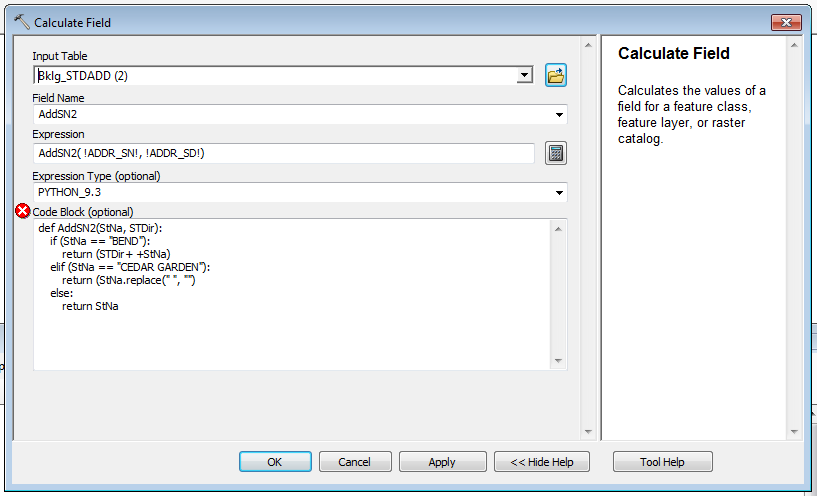I am working on a task that will calculate a field to fix errors stemming from the Standardize Addresses tool and human error with the input data.
The script is below. I'm getting Error 000989 "Python syntax error: Parsing error SyntaxError: invalid syntax (Line 6)"
Note: ADDR_SN and ADDR_SD seems to be a truncated output of Street Name and Street Direction (There is some confusion as the Standardize Address tool is new to me)
Any pointers to help fix this code?
Expression:
AddSN2( !ADDR_SN!, !ADDR_SD!)
ADDR_SN is the Street Name and ADDR_SD is the street direction.
Code Block:
def AddSN2(StNa, STDir):
if (StNa == "BEND"):
return (STDir+ +StNa)
elif (StNa == "CEDAR GARDEN"):
return (StNa.replace(" ", "")
else:
return StNa


